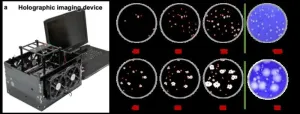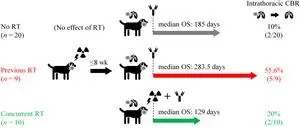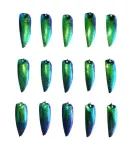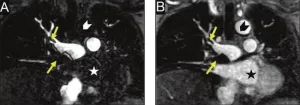New rapid viral plaque detection system, aided by deep learning and holographic imaging, can help accelerate vaccine and drug development
2023-06-23
(Press-News.org) Findings
In a new paper published in Nature Biomedical Engineering, a team of scientists led by Professor Aydogan Ozcan from the Electrical and Computer Engineering Department at UCLA and an associate director of the California NanoSystems Institute, developed a rapid, stain-free, and automated viral plaque detection system enabled by holography and deep learning. This system incorporates a cost-effective and high-throughput holographic imaging device that continuously monitors the unstained virus-infected cells during their incubation process. At each imaging cycle, these time-lapse holograms captured by the device are periodically analyzed by an AI-powered algorithm to automatically detect and count the viral plaques that appear due to virus replication.
Background
Viral infections have challenged humanity for centuries. Even with progressive scientific advancements, the struggle against viruses continues, as exemplified by the recent COVID-19 pandemic. In the fight against these viral infections, a variety of techniques have been established for detecting and quantifying viruses, contributing significantly to the development of critical vaccines and antiviral medications. Among these techniques, the viral plaque assay stands out as the gold standard due to its unique ability to assess virus infectivity in a cost-effective way by observing the formation of viral plaques caused by viral infections over a layer of cells. Nevertheless, the traditional viral plaque assays require an incubation period of 2~14 days, followed by sample staining using chemicals and human visual inspection to count the number of viral plaques. This procedure is time-consuming and susceptible to staining artifacts and counting errors induced by human technicians. Therefore, an accurate, automated, rapid, and cost-effective viral plaque quantification technique is urgently needed.
Method
The proof-of-concept and effectiveness of this system were demonstrated using three different types of viruses: vesicular stomatitis virus (VSV), herpes simplex virus type-1 (HSV-1), and encephalomyocarditis virus (EMCV). By utilizing this system, UCLA researchers achieved the detection of over 90% of VSV viral plaques within 20 hours of incubation without any chemical staining, demonstrating a time saving of more than 24 hours in comparison to the traditional plaque assay, which requires 48 hours of sample incubation. In the case of HSV-1 and EMCV, this system effectively reduced their viral plaque detection times by approximately 48 and 20 hours, respectively, compared to the detection time needed for the traditional staining-based viral plaque assay.
Impact
In addition to offering major time savings, this stain-free and cost-effective system can successfully identify individual viral plaques within clusters as opposed to the traditional viral plaque assays, which fail to separately detect and count those individual plaques within clusters due to the spatial overlap of their signatures.
Authors
Tairan Liu, Yuzhu Li, Hatice Ceylan Koydemir, Yijie Zhang, Ethan Yang, Merve Eryilmaz, Hongda Wang, Jingxi Li, Bijie Bai, Guangdong Ma, and Aydogan Ozcan
What the Researchers Said:
Aydogan Ozcan: “Our results and analyses highlight the transformative potential of this AI-powered viral plaque detection system to be used with various plaque assays in virology, which might help to expedite vaccine and drug development research by significantly reducing the detection time needed for traditional viral plaque assays and eliminating chemical staining and manual counting entirely.”
Journal
This study is published online in the journal Nature Biomedical Engineering.
END
ELSE PRESS RELEASES FROM THIS DATE:
2023-06-23
The newly revised ruling on advance medical directives and withholding/withdrawing medical support for the dying in India will inevitably force some terminally ill patients to “live a life of machine-related suffering” and deprive them of their autonomy and dignity in death, suggest specialist doctors in a letter published online in the journal BMJ Supportive & Palliative Care.
While a progressive step, the 2023 ruling still has important shortcomings, they add.
In the absence of any specific legislation ...
2023-06-23
***Embargo: 23.30 UK time / 18:30 ET / 15:30 PT Thursday, 22 June 2023***
SEATTLE, Wash. June 22, 2023 – More than half a billion people are living with diabetes worldwide, affecting men, women, and children of all ages in every country, and that number is projected to more than double to 1.3 billion people in the next 30 years, with every country seeing an increase, as published today in The Lancet.
The latest and most comprehensive calculations show the current global prevalence rate is 6.1%, making diabetes one of the top 10 leading causes of death and disability. At the super-region level, the ...
2023-06-23
The Women’s Engineering Society has named the University of Surrey’s Dr Kelly Kousi as one of the finalists in its Top 50 Women in Engineering Awards (WE50) 2023: Safety and Security. The announcement coincides with International Women in Engineering Day 2023, a celebration of women in engineering.
Dr Kousi, a lecturer in the School of Chemistry and Chemical Engineering, leads a research group of scientists and engineers who work on emission control, synthetic fuel production ...
2023-06-23
When combined with iridescent colouration, a matt target surface appearance confers greater survival benefits in beetles than a glossy surface, scientists at the University of Bristol have found.
The findings, published in Behavioural Ecology, suggest that iridescence provides camouflage independent of glossiness, which means that it is the colour of iridescent surfaces and its changeability, that is the most important aspect of iridescence in enabling camouflage.
Iridescence is a type of structural colouration that produces bright, vibrant hues. These are often angle-dependent, meaning the observed colour appears to ...
2023-06-23
Influenza A is one of two influenza viruses that fuel costly annual flu seasons and is a near constant threat to humans and many other animals. It's also responsible for occasional pandemics that, like the one in 1918, leave millions dead and wreak havoc on health systems and wider society.
Influenza A was first identified as a health threat nearly a century ago, but only in the last decade have scientists identified one of the virus’s key proteins for infiltrating host cells and short-circuiting their defenses. Now, a team of researchers at the University of Wisconsin–Madison have taken a major step toward ...
2023-06-23
AURORA, Colo. (June 22, 2023) – An article published today in the journal Lancet Neurology evaluates the risk of recurrence of active disease in older patients with multiple sclerosis after discontinuing disease-modifying therapies.
Multiple sclerosis (MS) is a chronic illness, often presenting in young adulthood. Most commonly, at onset, individuals have acute attacks, or relapses, of intermittent new neurological symptoms such as vision changes, numbness, and weakness that may come and go, seemingly randomly, and then remit completely or incompletely. ...
2023-06-23
They might not be able to leap tall buildings with a single bound, but leaf-cutting ants are insect superheroes, capable of carrying leaf pieces up to six times their body mass to cultivate fungus in their borrows. But how do the charismatic creatures determine the size of the fragments they carve with their mandibles? Do they use their bodies as a simple ruler, or do they use information about the position of their bodies to adjust how far they cut, adapting to the thickness of a leaf while dismembering it? Knowing that the insects alter the trajectory of a cut when sculpting ®Parafilm of different thicknesses, Flavio ...
2023-06-22
Out to Innovate is proud to announce the winners of its 2023 recognition awards for lesbian, gay, bisexual, transgender, and queer (LGBTQ+) professionals in science, technology, engineering, and math (STEM). Out to Innovate has recognized exemplary individuals with LGBTQ+ Educator, Engineer, and Scientist of the Year for over 15 years.
2023 LGBTQ+ Educator of the Year: Ramón S. Barthelemy, Ph.D
The LGBTQ+ Educator of the Year award recognizes an educator who has significantly impacted STEM students through teaching, ...
2023-06-22
Leesburg, VA, June 22, 2023—According to an accepted manuscript published in ARRS’ own American Journal of Roentgenology (AJR), preferential use of pulmonary MR angiography (MRA) for diagnosing pulmonary embolus (PE) in the general population helped conserve iodinated contrast media during the 2022 shortage.
“This single-center experience demonstrates use of pulmonary MRA as a practical substitute for pulmonary CTA in emergency settings,” concluded lead investigator Jitka Starekova, MD, from the radiology ...
2023-06-22
Influenza A is one of two influenza viruses that fuel costly annual flu seasons and is a near constant threat to humans and many other animals. It's also responsible for occasional pandemics that, like the one in 1918, leave millions dead and wreak havoc on health systems and wider society.
Influenza A was first identified as a health threat nearly a century ago, but only in the last decade have scientists identified one of the virus’s key proteins for infiltrating host cells and short-circuiting their defenses. Now, a team of researchers at the University of Wisconsin–Madison have taken a major step toward understanding how that protein works, ...
LAST 30 PRESS RELEASES:
[Press-News.org] New rapid viral plaque detection system, aided by deep learning and holographic imaging, can help accelerate vaccine and drug development







